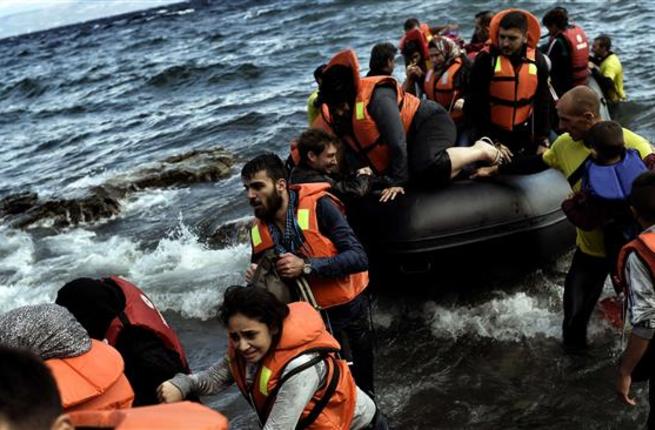-
Tips for becoming a good boxer - November 6, 2020
-
7 expert tips for making your hens night a memorable one - November 6, 2020
-
5 reasons to host your Christmas party on a cruise boat - November 6, 2020
-
What to do when you’re charged with a crime - November 6, 2020
-
Should you get one or multiple dogs? Here’s all you need to know - November 3, 2020
-
A Guide: How to Build Your Very Own Magic Mirror - February 14, 2019
-
Our Top Inspirational Baseball Stars - November 24, 2018
-
Five Tech Tools That Will Help You Turn Your Blog into a Business - November 24, 2018
-
How to Indulge on Vacation without Expanding Your Waist - November 9, 2018
-
5 Strategies for Businesses to Appeal to Today’s Increasingly Mobile-Crazed Customers - November 9, 2018
As a major migrant route closes, others are ready to open
Chinese artist and activist Ai Weiwei has visited the Idomeni refugee camp in northern Greece, where about 14,000 people, mostly Syrian and Iraqi refugees, have found themselves stranded after Macedonia shut its border.
Advertisement
German Chancellor Angela Merkel warned Thursday that closing the route used by migrants through the western Balkans “does not resolve the problem” and that this move is “not sustainable”.
Slovenia’s interior ministry said late Tuesday, March 8, that from midnight (2300 GMT), access would only be granted to “foreigners meeting the requirements to enter the country”, those wishing to claim asylum, and migrants selected “on a case by case basis on humanitarian grounds and in accordance with the rules of the Schengen zone”.
Now, about 13,000 migrants are stranded at the Macedonia-Greece border.
However, with a new readmission agreement between Greece and Turkey, migrants who cross the Aegean will be returned to Turkey. The deal could be finalized at an European Union summit next week.
The United Nations’ human rights chief Zeid Ra’ad Al Hussein voiced alarm Thursday over the draft deal that could see “illegal” collective and “arbitrary expulsions” of migrants from Greece to Turkey.
“Apparently Europe has made a decision to start a new phase in resolving the migrant crisis”.
Migrants try to get products from a truck at a makeshift camp on the Greek-Macedonian border near the village of Idomeni, Greece, March 10, 2016.
The move to close the Balkan route began with Austria announcing it would limit the number of migrants crossing its border.
With today’s readmission, Turkey this year has accepted the return of at least 447 migrants from Greece, officials said.
He said the scheme is key to managing the migrant influx.
Most refugees, who arrive in Greece and Italy, were Syrians, who continue to flee their country due to an ongoing civil war.
However, Austria on Thursday insisted the closure of the Balkan route was “permanent”. More than 2.7 million Syrian refugees are in Turkey.
Echoing Merkel’s position from the past that a “privileged partnership” would be better, Weber said “if Turkey wants a partnership with us then it’s important to make sure that Turkey doesn’t turn away from Europe”.
Dutch migration minister Klaas Dijkhoff, whose country holds the six-month rotating presidency of the 28-nation European Union, said the deal would be “temporary” if approved.
The Turkish proposals, which had been agreed with Merkel and Dutch prime minister Mark Rutte on the eve of the summit, came as a surprise to other European Union leaders.
She said she had been living in Syria for four years under the shelling, but traveled to Turkey, then to the Greek island of Lesbos, where she took a ferry to the mainland and on to Idomeni.
Advertisement
He told European leaders that Turkey wanted more for its citizens in exchange for helping the EU.





























